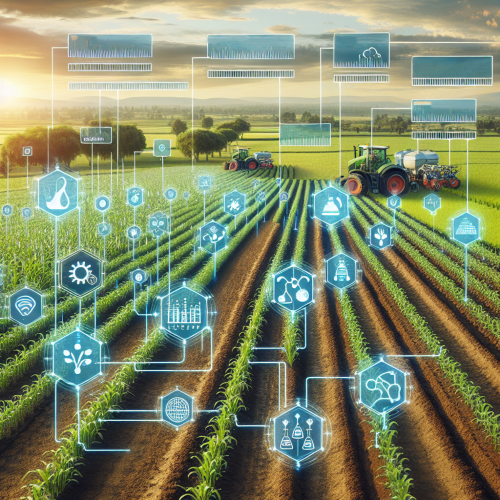How AI-Based Tools Are Shaping the Future of Emissions Reduction

In the battle against climate change, AI-based tools are emerging as powerful allies. These advanced technologies offer innovative solutions to reduce emissions, optimize energy use, and promote sustainable practices across various industries. Here are some notable examples of how AI is shaping the future of emissions reduction:
AI in Climate Prediction and Monitoring
AI-driven models are revolutionizing climate prediction and monitoring. For instance, AI algorithms can analyze vast amounts of climate data to predict future climate patterns and extreme weather events more accurately. This enhanced predictive capability helps governments and organizations plan and implement effective emissions reduction strategies.
Source: World Economic Forum
Sustainable Supply Chain Management
Companies like Amazon are leveraging AI to make their supply chains more sustainable. AI tools analyze data from various sources to optimize logistics, reduce waste, and minimize carbon footprints. For example, AI can predict demand more accurately, reducing the need for excess inventory and, consequently, the emissions associated with production and transportation.
Source: About Amazon
Smart Agriculture
AI is also transforming agriculture, a significant source of greenhouse gas emissions. AI-powered tools can optimize irrigation, reduce fertilizer use, and improve crop yields. By using sensors and data analytics, farmers can make more informed decisions, leading to more sustainable farming practices.
Source: McKinsey & Company

Energy Efficiency in Buildings
Buildings are one of the largest consumers of energy. AI can help manage energy consumption more effectively by optimizing heating, ventilation, and air conditioning (HVAC) systems. Smart buildings equipped with AI can learn from usage patterns and adjust energy use in real-time to reduce waste.
Source: Buildings.com
Transportation and Mobility
AI is playing a crucial role in making transportation more efficient and less polluting. AI algorithms optimize routes for delivery trucks, reducing fuel consumption and emissions. Additionally, AI is integral to the development of autonomous electric vehicles, which promise to significantly lower emissions in the future.
Source: Built In
Conclusion
As these examples illustrate, AI-based tools are at the forefront of efforts to reduce emissions and combat climate change. By harnessing the power of AI, we can develop more efficient, sustainable practices across various sectors.For more information on AI and its role in emissions reduction, you can use PopAi's AI Chat tool, which provides the latest and most accurate information.
